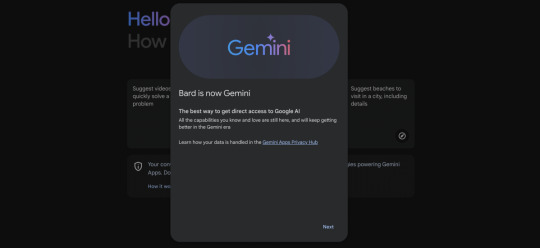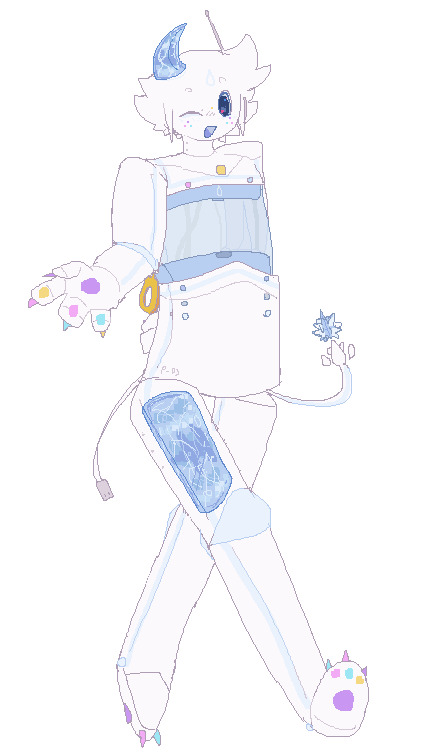#Information Retrieval
Explore tagged Tumblr posts
Text
Revolutionary ChatGPT Search Engine by OpenAI: 5 Key Benefits for Users
The ChatGPT search engine by OpenAI is a game-changer in the search technology landscape. Combining conversational AI with live web search, this tool enables users to obtain quick, relevant answers in a natural, user-friendly manner. Let’s dive into its transformative features and what makes it stand out. Enhanced Search CapabilitiesKey Features:Access Across PlatformsAvailability:Quality…
#AI#ChatGPT search engine#conversational AI#information retrieval#openai#real-time search#technology innovation#user experience#web search
0 notes
Text
Learning about Information Retrieval in NLP
Summary: Information Retrieval in NLP extracts relevant information from large datasets, improving search engines and question-answering systems. It uses techniques like keyword matching, semantic search, and relevance ranking to provide accurate and efficient results, enhancing user experience.

Introduction
In this article, we explore "Information Retrieval in NLP," highlighting its significance in transforming how we access and utilise information. Information Retrieval (IR) in NLP involves extracting relevant data from large datasets, enhancing the efficiency of search engines, question-answering systems, and more.
We'll delve into the fundamentals of NLP, define Information Retrieval, discuss its importance, and examine key features that make it indispensable in today's digital world. This article aims to provide a comprehensive understanding of how IR integrates with NLP to improve information accessibility and user experience.
What is NLP?
Natural Language Processing (NLP) is a field within artificial intelligence (AI) that focuses on the interaction between computers and human language. NLP enables machines to understand, interpret, and generate human language in a way that is both meaningful and useful.
The goal of NLP is to bridge the gap between human communication and machine understanding, allowing computers to process and analyse large amounts of natural language data.
Key Components and Applications of NLP
NLP involves several key components that work together to process and understand language. These components include:
Tokenisation: The process of breaking down text into smaller units, such as words or phrases, called tokens.
Part-of-Speech Tagging: Identifying the grammatical roles of words in a sentence, such as nouns, verbs, adjectives, etc.
Named Entity Recognition (NER): Detecting and classifying named entities, such as names of people, organisations, or locations, within text.
Sentiment Analysis: Determining the sentiment or emotion expressed in a piece of text, such as positive, negative, or neutral.
Machine Translation: Translating text from one language to another using computational models.
Text Summarisation: Condensing large volumes of text into shorter summaries while preserving the main ideas.
Examples of NLP in Real-World Applications
NLP has a wide range of applications across various industries. For example, in customer service, chatbots and virtual assistants use NLP to understand and respond to customer inquiries, providing instant support.
In healthcare, NLP is used to extract valuable information from unstructured medical records, aiding in patient care and research. Search engines rely on NLP to interpret and deliver relevant search results based on user queries. Additionally, NLP is employed in sentiment analysis for brand monitoring, helping companies gauge public opinion and customer satisfaction.
Overall, NLP plays a crucial role in enabling machines to understand and process human language, making it an essential technology in today's digital world.
What is Information Retrieval in NLP?

Information Retrieval (IR) is the process of obtaining relevant information from a large repository, such as a database or the internet, based on a user's query. In Natural Language Processing (NLP), IR focuses on finding and extracting relevant text-based information using algorithms and computational methods.
The primary goal of IR is to provide users with accurate and pertinent results quickly and efficiently, enhancing their ability to find the information they need.
How IR is Integrated into NLP Systems
IR plays a crucial role in NLP systems, particularly in applications like search engines, question-answering systems, and document retrieval. These systems use IR techniques to process and understand user queries, match them with relevant documents, and rank the results based on their relevance.
NLP enhances IR by enabling systems to understand natural language queries, recognise synonyms, and interpret context, making the retrieval process more intuitive and user-friendly. For instance, an NLP-based search engine can understand the difference between a query for "Apple" the fruit and "Apple" the technology company, providing more accurate search results.
Common Techniques Used in IR for NLP
Several techniques are commonly used in IR for NLP to improve the accuracy and relevance of retrieved information:
Keyword Matching: This technique involves matching the keywords in a user's query with the keywords in documents. While simple, keyword matching can sometimes miss relevant documents that use different wording.
Semantic Search: Semantic search goes beyond keyword matching by understanding the meaning and context of words in a query. It uses techniques like word embeddings and knowledge graphs to find documents that are conceptually related to the query, even if they don't contain the exact keywords.
Relevance Ranking: After retrieving documents, relevance ranking algorithms order the results based on factors like the frequency of keywords, the importance of the documents, and user feedback. This ensures that the most relevant documents appear at the top of the search results.
These techniques work together to create efficient and effective IR systems in NLP, enabling users to access information more easily and accurately.
Read: What is Tokenisation in NLP? Everything You Need to Know!
Importance of Information Retrieval in NLP
IR plays a crucial role in enhancing NLP applications. By effectively retrieving relevant information, IR systems improve the efficiency and accuracy of NLP tasks, making them more valuable and user-friendly.
The Role of IR in Enhancing NLP Applications
IR enhances NLP by providing the necessary infrastructure for organising and accessing large volumes of textual data.
This capability is essential for NLP applications like search engines, where the goal is to deliver relevant information to users quickly. IR techniques, such as indexing and relevance ranking, allow these systems to process queries and return the most pertinent results efficiently.
Contribution to Key NLP Tasks
IR is integral to various NLP tasks, including search engines, question answering systems, and document retrieval. In search engines, IR algorithms determine which documents best match a user's query.
For question answering systems, IR helps identify precise answers from vast datasets. In document retrieval, IR aids in locating specific documents or information within large corpora, enhancing research and decision-making processes.
Impact on User Experience and Accessibility
The effectiveness of IR directly impacts user experience and accessibility to information. By providing accurate and relevant results, IR systems enhance user satisfaction and ensure quick access to desired information. This not only improves user engagement but also democratises access to knowledge, making it available to a broader audience.
Key Features of Information Retrieval in NLP
IR in NLP is crucial for efficiently finding relevant information from vast datasets. This process involves several key features, including indexing and data storage, query processing, relevance ranking, and continuous advancements to tackle challenges like handling large datasets and improving accuracy.
Indexing and Data Storage Techniques:
Indexing structures data to enable quick and efficient retrieval. Techniques like inverted indexes store document identifiers and terms, facilitating rapid search responses. Efficient data storage ensures that the information is easily accessible and can be processed swiftly.
Query Processing and Optimisation Methods:
Query processing involves analysing and interpreting user queries to extract relevant information. Optimisation methods enhance this process by refining the search criteria and eliminating irrelevant data. Techniques like query expansion and normalisation improve the precision and recall of search results, ensuring users receive the most relevant information.
Relevance Ranking and Evaluation Metrics:
Relevance ranking orders search results based on their relevance to the query. Algorithms like TF-IDF (Term Frequency-Inverse Document Frequency) and BM25 score documents to prioritise the most relevant ones. Evaluation metrics, such as precision, recall, and F1 score, measure the effectiveness of these algorithms, helping refine the IR system for better performance.
Challenges and Advancements in IR for NLP:
Handling large datasets poses significant challenges in IR. As data volumes grow, maintaining fast and accurate retrieval becomes more complex. Recent advancements focus on scalable algorithms and distributed computing to manage these challenges.
Additionally, improving accuracy in understanding context, semantics, and user intent is a major area of development. Techniques like deep learning and neural networks are increasingly being used to enhance the understanding of language nuances, resulting in more precise and relevant search outcomes.
Explore: Learn about the Probabilistic Model in Machine Learning.
Frequently Asked Questions
What is Information Retrieval in NLP?
Information Retrieval (IR) in NLP involves extracting relevant information from large datasets using algorithms. It enhances search engines and question-answering systems, providing accurate and pertinent results based on user queries.
How does Information Retrieval improve NLP applications?
Information Retrieval improves NLP applications by efficiently retrieving relevant data, enhancing user experience and accessibility. It plays a crucial role in search engines, question-answering systems, and document retrieval, making information more accessible and accurate.
What are the key techniques used in Information Retrieval for NLP?
Key techniques in Information Retrieval for NLP include keyword matching, semantic search, and relevance ranking. These methods ensure accurate and relevant search results, improving the efficiency and effectiveness of NLP systems.
Conclusion
Information Retrieval (IR) in NLP is pivotal for extracting relevant information from vast datasets, enhancing the functionality of search engines, question-answering systems, and more. By employing techniques like keyword matching, semantic search, and relevance ranking, IR systems improve the accuracy and efficiency of information access, making NLP applications more user-friendly and effective.
#Information Retrieval in NLP#Information Retrieval#NLP#natural language processing#machine learning
0 notes
Link
看看網頁版全文 ⇨ 資訊檢索的AI革新:從資訊檢索到檢索增強生成 / The AI Revolution in Information Retrieval: From Information Retrieval to Retrieval-Augmented Generation https://blog.pulipuli.info/2024/07/ai-the-ai-revolution-in-information-retrieval-from-information-retrieval-to-retrievalaugmented-generation.html 2024年7月我在中華民國圖書館學會於政治大學舉行的講習課程中,演講「資訊檢索的AI革新:從資訊檢索到檢索增強生成」。 以下是投影片跟相關內容的連結。 In July 2024, I will give a lecture titled "AI Innovation in Information Retrieval: From Information Retrieval to Enhanced Generative Retrieval" during the seminar course held by the Library Association of the Republic of China at National Chengchi University. Below is the link to the slides and related content.。 Fix Short URL: https://l.pulipuli.info/24/nccu/rag。 ---- # 1. 從圖書館到資訊檢索 / From Libraries to Information Retrieval。 ## 投影片 / Slide - Google投影片 - PDF格式下載 ---- # 2. 自然語言處理之詞彙索引 / Lexical Indexing in Natural Language Processing。 ## 投影片 / Slide - Google投影片 - PDF格式下載 ---- # 3. 自然語言處理之語意向量 / Embedding in Natural Language Processing。 ## 投影片 / Slide - Google投影片 - PDF格式下載 ## 活動3-1. 語意向量的檢索 / Activity 3-1. Semantic Retrieval with Embedding。 1. 取得文本 Dataset. 問水果店還是寵物店.csv (預覽) 2. 開啟Simple Text Analyzer Simple Text Analyzer (原始碼) 3. 開啟檔案與建立模型 4. 觀察模型 5. 查詢文本 6. 驗證結果 1. Dataset. 問水果店還是寵物店.csv (預覽) 1. Simple Text Analyzer (原始碼) ---- 繼續閱讀 ⇨ 資訊檢索的AI革新:從資訊檢索到檢索增強生成 / The AI Revolution in Information Retrieval: From Information Retrieval to Retrieval-Augmented Generation https://blog.pulipuli.info/2024/07/ai-the-ai-revolution-in-information-retrieval-from-information-retrieval-to-retrievalaugmented-generation.html
0 notes
Text
language is stored in the balls
0 notes
Text
Bard Takes Flight: Introducing Gemini, Ultra 1.0 and Your New Mobile AI Companion
Bard No More! Introducing Gemini, Your New AI BFF #Bard #Gemini #Ultra1.0 #GoogleAI #mobileaccess #onthegoassistance #creativity #coding #collaboration #factualaccuracy #informationretrieval #personalization #earlyaccess #India
Get ready to witness a metamorphosis! Bard, the AI you’ve come to know, is evolving into Gemini, powered by the cutting-edge Ultra 1.0 model. This exciting transformation brings not only a new name but also a significant leap in capabilities and accessibility. Buckle up, and let’s explore what Gemini has in store for you! Unleashing Ultra 1.0 Power: Gemini’s core is the revolutionary Ultra 1.0…

View On WordPress
#accessibility#AI#artificial intelligence#Bard#chatbot#coding#collaboration#creativity#development#early access#education#Entertainment#factual accuracy#future of AI#Gemini#Google AI#india#information retrieval#innovation#language model#machine learning#mobile access#mobile app#natural language processing#NLP#on-the-go assistance#personalization#productivity#research#text-to-speech
0 notes
Text
Update: they've released a statement on their Tumblr @ao3org (Sep 5 2024 7:55 AM UTC-8) saying that they've paused this process after the disastrous impact of the Sherlock Holmes & Related Fandoms metatag removal. Their statement goes on to say that the tag wranglers will be having internal discussions about how to proceed from here.
From the outside, we have no guarantee that (even inside AO3's tag wrangling committee) the decision will be made democratically or based on a full discussion. (That would be unusual for any big organisation, nonprofits included :/)
But if you're at all concerned, it's still worth writing in! Even if you're not a member or donor, you're still one of the users the Archive is designed to support. (Echoing OP:) When you write in, discuss how the "proposed" changes would hinder your ability to look up fanworks (fic). Discuss how overwriting creators' tagging choices sets a dangerous precedent for creator autonomy.
AO3 is Removing 'All Media Types' without Public Input or Announcement. What Can We Do?
What's Happening?
For those who don't yet know: AO3 and the Tag Wranglers have begun to slowly remove the 'All Media Types' tag for older fandoms. Aka, removing the 'umbrella' tag for many franchises, and forcing franchises to be split by media, or to be shoved under one umbrella that does not accurately reflect the types of fics or source medias they come from. This has been slowly occurring with no official announcement, under the pretense that things will be 'easier' to manage, or that some users claimed that the 'All Media Types' tag was confusing. This has begun in secrecy, without genuine input from the userbase, and without any public announcement. (As of 9/5/2024 9:30 AM PST) Many of us are pretty confident in AO3 staff's decisions, but the fact that this decision is not only incredibly impactful, but made without public input, has deeply violated the condition of the site as an archive... an archive of OUR own.
Current seen issues and active risks:
Removal of 'All Media Types' automatically makes fics from different sources in the same franchise a 'crossover', forcing users to consider non-crossover fics 'crossovers'. So, any fanfic that spans or implements elements from multiple pieces of media in a franchise are now considered a 'crossover', despite being from the same franchise and not a crossover.
Removal of 'All Media Types' forces users to manually search for the fics and ships they want one by one through each fandom tag in a related franchise. (Imagine looking through all the separate DC or MARVEL movies one by one).
The 'include crossovers' and 'exclude crossovers' filters are now useless, and removing genuine crossovers (crossovers between franchises) must be done manually through the filter system, which can take upwards of half an hour, if not longer, with the amount of one-off genuine crossovers that exist.
Slightly smaller franchises are being shoved under the umbrella of a single, super popular fandom. (See, Sherlock Holmes. All Sherlock Holmes media has been relegated to the tag 'Sherlock TV', which confuses users, as the tag now includes not only BBC Sherlock, which is the umbrella tag, but any works based off of Arthur Conan Doyle's original works, the 2009 Sherlock Holmes films, and the 16+ Sherlock Holmes adaptations and international TV shows... none of which are BBC Sherlock.)
Anime and manga fandoms (especially smaller ones) are being automatically split by media type, without regard to the fact that many anime and manga adaptations are very similar, and/or authors tend to often implement elements from both anime and manga.
As far as we are aware, no one is going to be correcting any improper sorting resulting from this.
Accounts that are no longer active/accessible, memorial accounts, and orphaned fics and no longer be corrected by their original authors and are at risk of being misplaced into incorrect fandom tags. Unfortunately, no one can fix this but the tag wranglers, who were supposedly removing 'All Media Types' in the first place to prevent MORE work. Counter intuitive, isn't it?
Already, fandoms are being improperly split, others being improperly merged, and still more being far more confusingly sorted. This deeply damages AO3's integrity as an ARCHIVE.
What Can I Do?
As soon as it's back up again, make sure to stop by the Contact Support page! There, you're able to let them know exactly how you feel about this, and what fandoms your fear will be impacted by these changes. Many already have been.
In the meantime, make sure to contact AO3 on Twitter (or X): ao3org (AO3's general twitter page), ao3_wranglers (AO3's tag wrangler page), and OTW_news (the parent host of AO3).
There is also tumblr: ao3org (AO3's tumblr page) and transformativeworks (OTW's tumblr page).
And finally, the Organization for Transformative Works contact page.
If you are aware of any additional medias, please add them below to ensure that AO3 thoroughly understands the negative impact of this decision, especially the violation of trust resulting from making such a massive choice without impact. Be sure to share this information elsewhere, repost, share the links, and make a stink. Furthermore, if you are able, letting AO3 know that you are no longer comfortable financially supporting them in the future.
Be sure to also repost and list any fandoms you have personally noticed have been impacted by this change!
Already Impacted Fandoms:
MARVEL, MCU, Marvel Comics, Avengers, and related tags
Any Sherlock Holmes based Media
A Song of Ice and Fire (Game of Thrones, House of the Dragon)
World of Warcraft
Assassin's Creed
Monogatari
BanG Dream!
Jujutsu Kaisen
Disney (all media, now: Disney Theatrical Animated Universe)
DC and DC Comics
AND MANY, MANY MORE!
576 notes
·
View notes
Text

Bond Rees: Your Trusted Partner in Unveiling the Truth
Need answers? Looking for concrete evidence? Bond Rees is your one-stop shop for reliable, discreet, and effective private detective services in the UK. Bond Rees isn't just a private detective agency; we're your confidant, your partner, and your champion in uncovering the truth. We understand the sensitive nature of your case, and we're committed to providing discreet, professional, and effective solutions.
#Private Investigator#Investigation Services#Surveillance#Background Checks#Missing Persons#Cheating Spouse#Licensed Investigators#Bondrees.com#Professional Investigations#Information Retrieval#Confidential Investigations#Personal Security#Private Detective#Trustworthy Investigators#Investigative Services
0 notes
Note
If you could give everyone a single piece of advice what would you tell them? (It does not have to be good advice)
You are not "just good at googling".
1.) It is a skill called "information retrieval"
2.) You are selling yourself short by not recognising it is a skill
3.) You are at the same time kicking on people who ain't that good at it yet, and also on people who work with it (i.e librarians or people who work with intelligence studies, future studies and other information specialists).
Not all places looks the same, here are a few terms for google:
+ (or AND) to add importance to a thing
- (or NOT) to disregard that thing
"" to make a thing with more words into a thing, or specify a word.
OR to use either of two (or more of more ORs are added)
AND OR and NOT works the same way as philosophical logic. There are more, but these will help your information retrieval alot!
Best wishes!
1 note
·
View note
Text
What was the last thing you searched for online? Why were you looking for it?
Explore the world of online research and its impact on health awareness. Discover the empowering benefits of Well Health Hub, where knowledge turns into action and insights bridge the gap. In today’s digital age, accessing knowledge has become effortless with the plethora of information available at our fingertips. Online research has transformed the way we learn and gather…

View On WordPress
#dailyprompt#dailyprompt-2043#information retrieval#internet query#last search#online browsing#online research#online search#search history#search query#web search
0 notes
Text

water dispenser roboe
#this is still part of the mindscape and willow's alternate dimension stuff but#im starting to think i should add individual oc tags for them cause some of them are really different#alongside the willow tag#tenka willow#my sona#oc:p-03#my art#their code name is p-03 but they like calling themselves laundry#they primarily promote hydrating yourself and can distribute water like a vending machine#(no cups included tho)#they also do health checkups and. for some strange reasons they can do a lot more other things#which might be slightly concerning (like scanning for data or retrieving information rather quickly)#also their tails can extend to be longer#oh and they only have 1 antenna#other than that they're just a silly guy
108 notes
·
View notes
Text
A decade or two ago I could have called people of my generation such insults as "incurious" or "outsourcing mental labour", but... yeah :/
kids in the tiktok comments always like “where can I watch this online??” “where are you guys watching this!!” “it’s not on streaming!! 😭” truly we’ve fucking forsaken this generation we’ve genuinely failed them at this point
#there was a point where the fact that you're online to ask these questions means that you should already know#but that was many many years ago :(#research#information retrieval#smth smth generation gap generalisation
35 notes
·
View notes
Text
Imagine sending an extremely professional ruthless mercenary to do some mercenary business on an island far away and while he's there he finds a young kid who he adopts as his son and he has a journey of self discovery and acceptance in regards to his sexuality and he meets a really nice guy who he starts an almost-relationship with and he learns the true power of friendship and all in all does everything except what you sent him there to do
#that relatable moment when you sent a spy to retrieve information but all he retrieves is a boyfriend instead#qsmp#fitpac#qsmp fitmc#fitmc#qsmp ramon#qsmp fit#hideduo#maybe the real player data was the friends we made along the way
376 notes
·
View notes
Text
City traversal again, this time to a new sector. This one has more architecture. At least one building is embedded in/made up of/hollowed out of a vast statue of a deity. Well-populated for daytime. Accipiter alights from some unlikely conveyance, consulting their notes, and then makes their way into a building that looks a little bit like someone wanted to make the leaning tower of Pisa into a ziggurat. Inside, the library ()on the floors that can be seen from the entrance) is mostly reading rooms, study carrels of various sizes, and alcoves. All the levels— and there are many, up higher it seems like the roof disappears into mist but that is almost certainly a trick of the windows— can be accessed by stairs, ramps, and elevators which travel up and down the central well (hint: do not look down) as well as gondolas which ply horizontally along the axial corridor. It is not this big from outside. There's a desk in the central well, set four-square between the elevators, on a crank system so it can move up and down as needed. This is both the information and main circulation desk. Reference and consultation are in booths that shuttle around. More on this later: it's about accessibility, and serving patrons with wildly differing bodies, ability, and stages of life much less information and communication needs. Anyway! There are windows along the walls at intervals and of course at the top of the central well is a great glass dome (definitely not visible from outside). Walkways extend right up to the central desk, and there are safety rails along the edges. Past the desk, still on the central dias between the elevators, is a plinth, and on the plinth is an obelisk. The obelisk has half a figure sort of bas-relief/mezzo-relievo either embedded in or emerging out of it depending on your interpretation. This is the library Sphinx. Accipiter walks around the central well, trailing fingers along the handrail, and approaches the Sphinx. Directly in front of the obelisk is a vertical tube, about half the height of the obelisk. Plainly, Accipiter has been to a library before, even if they had to look up how to find this one: they step toward the tube and place their hand out. A void opens in the tube and a tongue emerges, wrapping around their wrist, the barbed end pricking a drop of blood from their finger and licking it away. Given that the rest of what follows happens in the un-place of the mind between the Sphinx and the patron, perhaps what we see is Accipiter passing into the Sphinx: the dimension which it guards, contains, and is. The library (physical) ceases to exist and in its place forms an unbounded space, warmly lit and sepia-tinted. Fading into the distance in all directions— up, down, left, right, charm, strange— are shelves, neatly ranked with books into infinity. The space itself, the space Accipiter currently sort of hangs in, is like the gap in the stacks between two ranges. No floor nor ceiling, but walls almost close enough to touch. Accipiter is not touching anything as they exist in the gap between the shelves. In front of them is a sphinx. Highly stylized, very large, and entirely literal. Her eyes glow, her wings rustle, her six nipples are pierced. She's entirely inhuman even where she's human, and terrifying. Very probably in the presence of the Sphinx, parts of Accipiter's appearance are changed, things revealed about them. Seems likely. The Sphinx attenuates and disperses. An interlude of incomprehensible speech— runes, shape-words, characters of no alphabet— occurs, words hanging in the space, writing across Accipiter's body and face, etc etc.
trying to post from desktop, a thing which I might not be able to do?
3 notes
·
View notes
Text

Bond Rees: Your Trusted Partner in Unveiling the Truth
Need answers? Looking for concrete evidence? Bond Rees is your one-stop shop for reliable, discreet, and effective private detective services in the UK.
Bond Rees isn't just a private detective agency; we're your confidant, your partner, and your champion in uncovering the truth. We understand the sensitive nature of your case, and we're committed to providing discreet, professional, and effective solutions.
#Private Investigator#Investigation Services#Surveillance#Background Checks#Missing Persons#Cheating Spouse#Licensed Investigators#Bondrees.com#Professional Investigations#Information Retrieval#Confidential Investigations#Personal Security#Private Detective#Trustworthy Investigators#Investigative Services
0 notes
Text

my dumb cat Hazard
#buggles#tf oc#transformers oc#tf#small appearance from sw Hazard is kinda like a teenager ngl he fucking hates soundwave cuz he depends on him because he kinda wiped#all memories of who he was before stealing his (dead dead bedause he tried to khs but it backfired and killed his) bff/amica#and soundwave was the only one who'd even retrieve the information about hazard and his connections and then saw the records talking about#someone who could manipulate people's spark memories and just went 'ohhh this kid fucked up ig'#since he also had to like learn nmemosurgery cuz og hazard was a nmemosurgeon who hated music#but *insert hazard's real name* loves music so that kinda got him cranky having to drop his guitar forever#whatever#oc posting
17 notes
·
View notes
Text
Pollen??????
#POLLEN?#I’m screaming#I have not kept up to date with always sunny holy crap do I need to watch this episode?#this would have wrecked me during my always sunny fet phase in 2019#look at this diva#I love how it’s mac’s responsibility to inform dennis of the pollen#man I really love the cunty cat/dopey retriever dynamic don’t I
5 notes
·
View notes